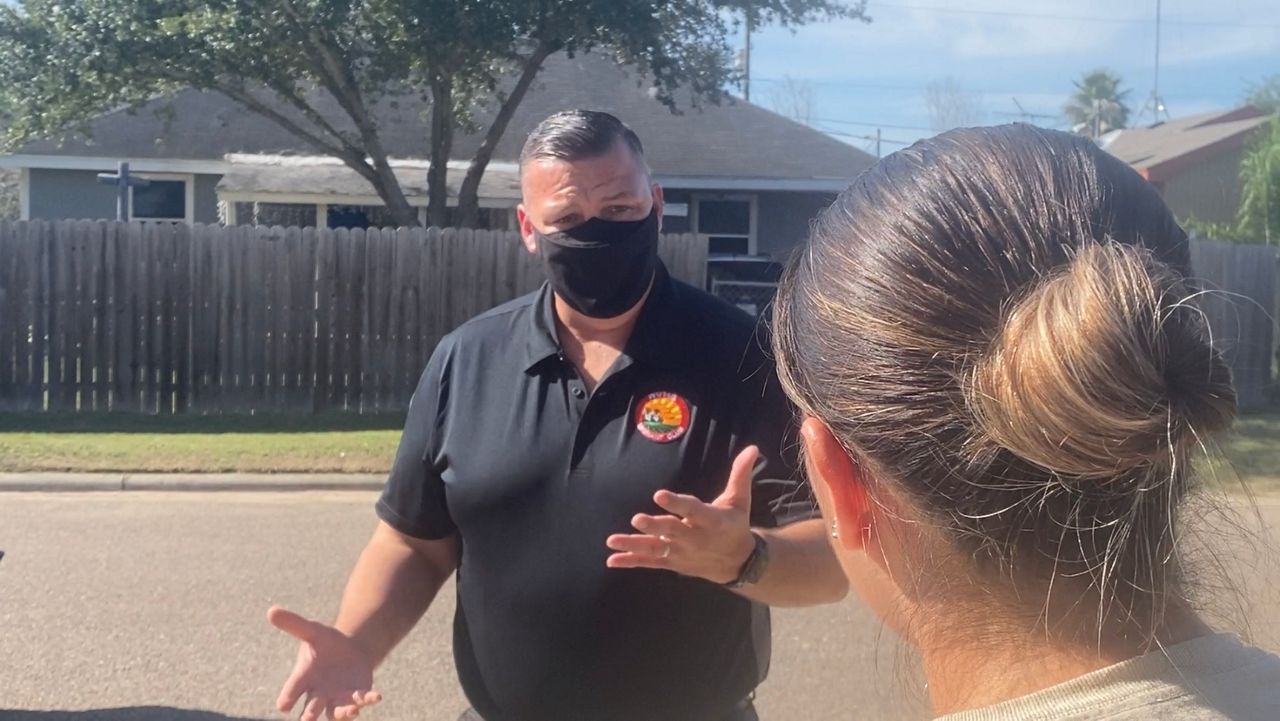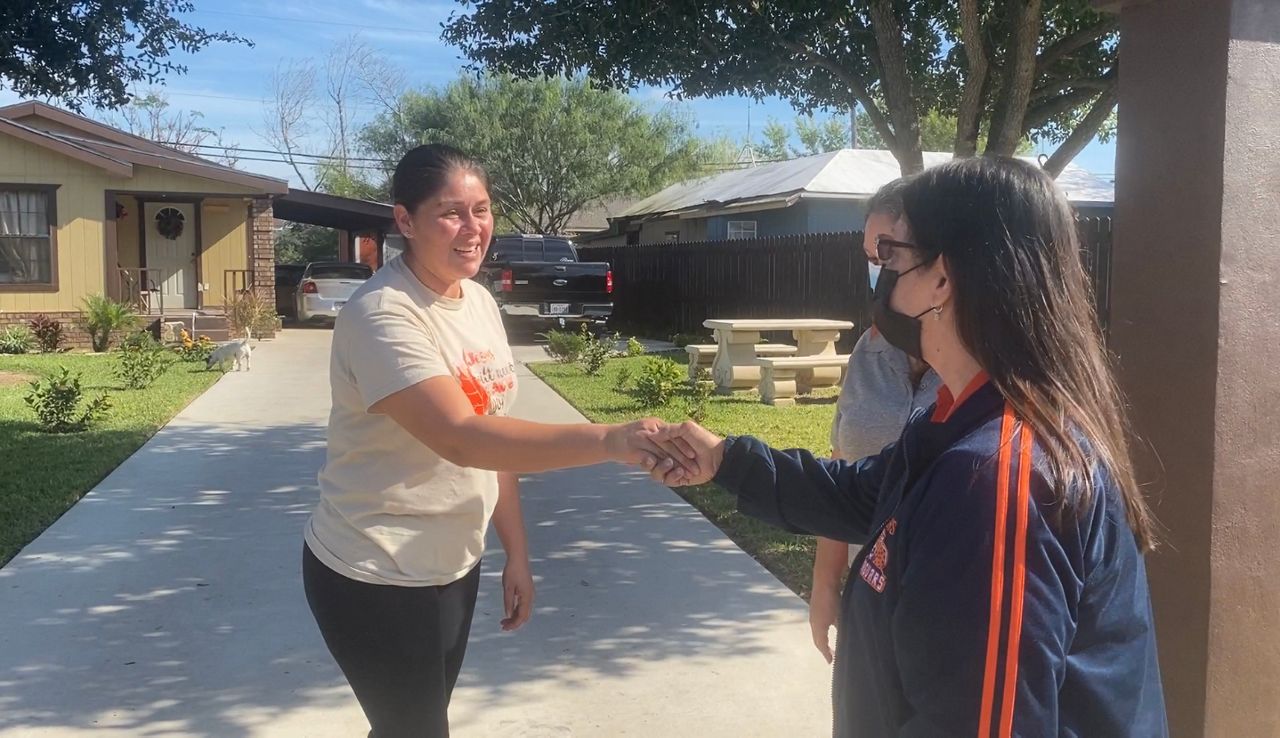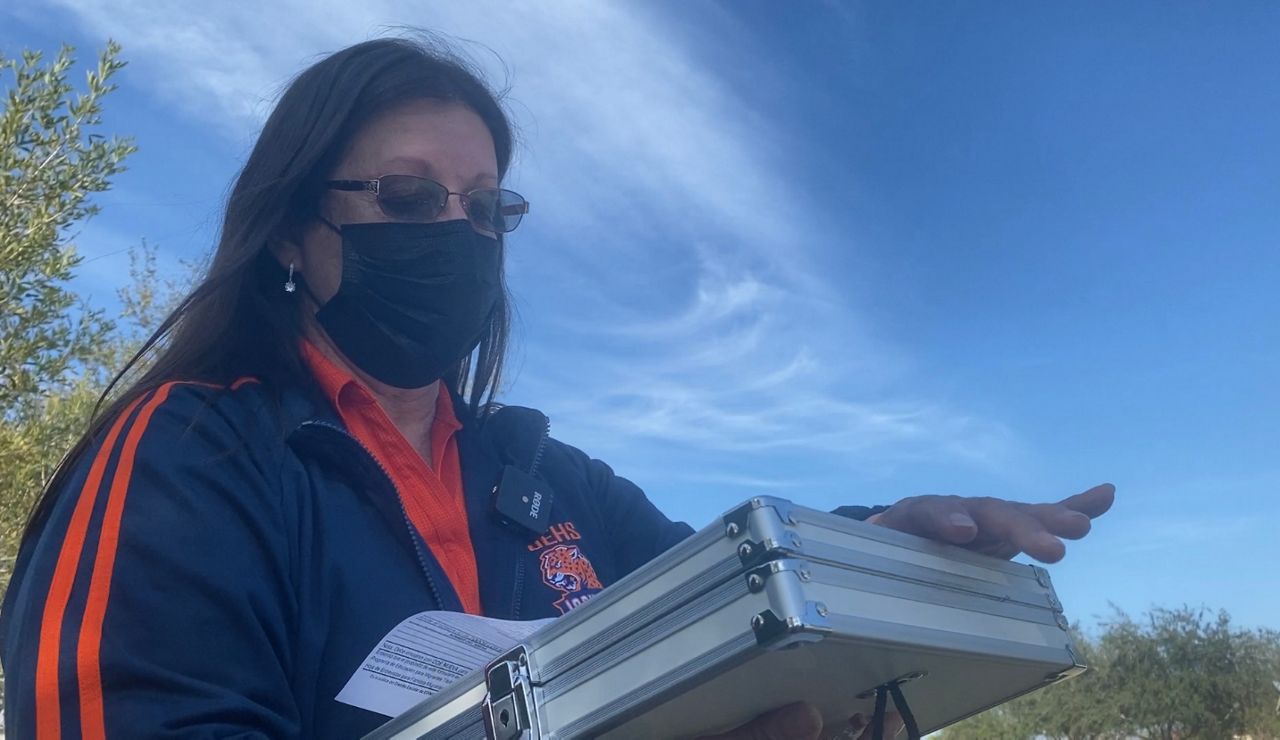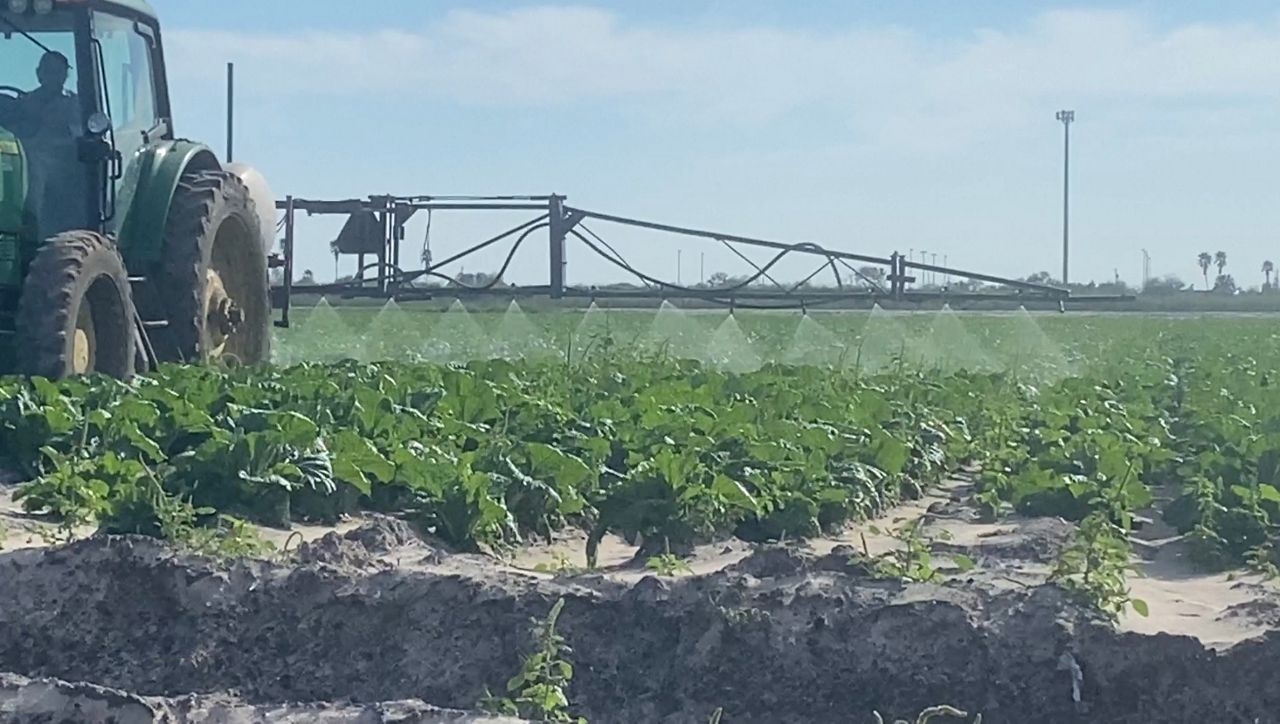EDINBURG, Texas — Osiel Salinas is a counselor at Edinburg Consolidated School District. He is usually at a desk, but this week he and his team are going door-to-door looking for a special kind of student who needs help out in the fields where food is grown. The effort is part of the district's migrant agricultural student program.

“Many of these students don't know about any other life. They know the hard life, they know the hard labor, picking cotton, picking pineapples," Salinas said.
There are families just like Carla Sotelo’s, whose two teenage sons also work in the fields in addition to attending school. Sotelo said she was thankful for the help. Otherwise it would be very difficult for her to keep them focused in school without worrying about what might happen later or where and when they would have to migrate somewhere else.

“We come from Mexico, and it’s very difficult to work on the crops. It’s a very hard life,” said Sotelo.
School authorities say being a migrant agricultural worker often means being on the move or in the shadows of parents who are undocumented. Many students leave and don’t finish school.
“Some of them don’t even wait to the end of the year. They leave in May because they have to go and start working. They don’t finish the year and we try to help them finish the year,” said Noelia Avila, who also joined the program.

As a school counselor, Salinas says many of these students face socioeconomic challenges that perpetuate.
“My job is to break that cycle away from the parents and give them that education they need and they desire. The first goal is that high school diploma,” he said.
For Salinas and Avila, both say this is more than just a job. It’s deeply personal situation they resonate with as children of immigrants.
“I know firsthand how it is not to have food on the table. This is something I went through. I saw what my mom and dad went through in the '80s and '90s," Salinas said.

The goal of the migrant agricultural students program is also to fight the stigma associated with working in the fields or being an immigrant. This program is also designed to provide resources that range from books and school materials to bilingual education, and to financial assistance for clothing, so that the students receive a bit of the gratitude they deserve.
“These students give up their lives in school when they could be educating themselves, and yet they’re out there working in the fields to provide food for us," said Avila.



